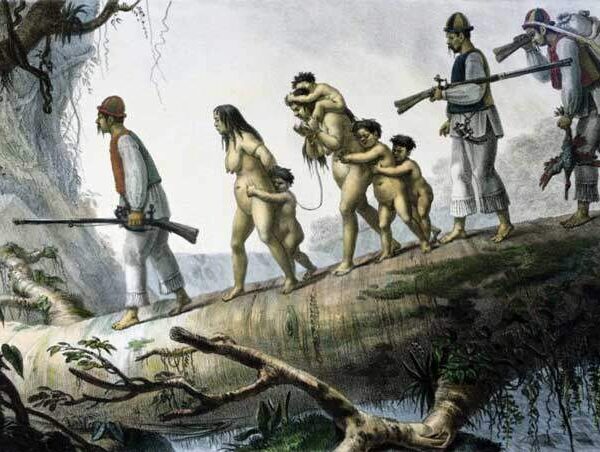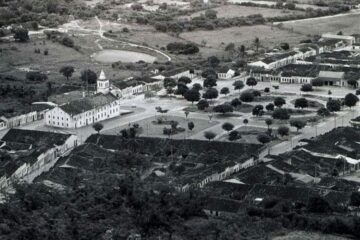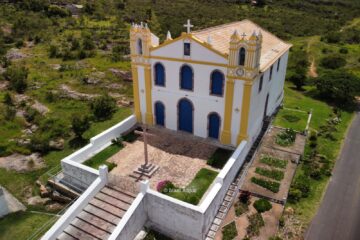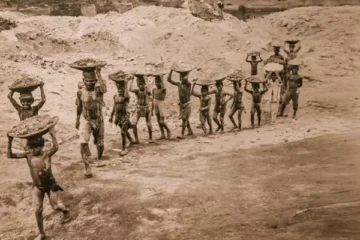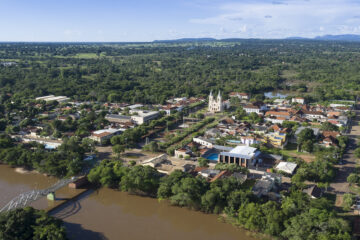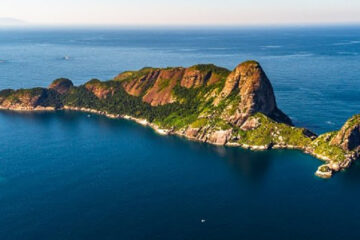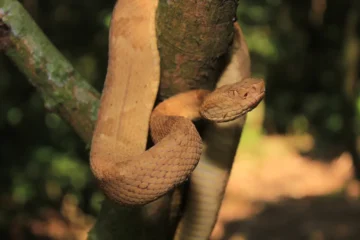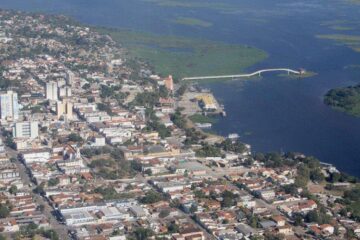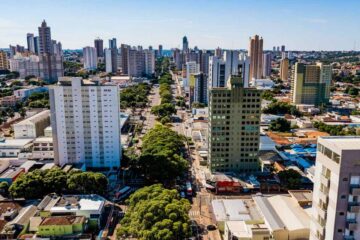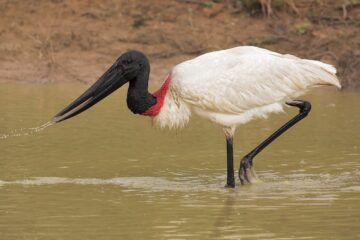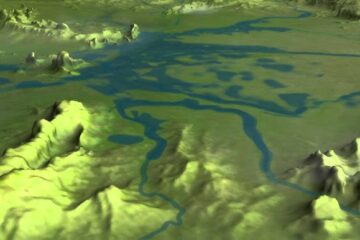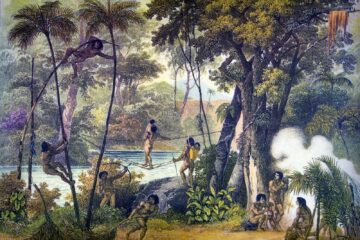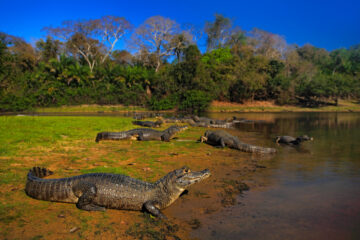Independence of Brazil – Breaking of colonial ties in Brazil 1. Introduction As you may have realised, we have presented a reading of different factors related to the emancipation of Portuguese America. The growth and diversification of society, the installation of the Portuguese Court in Brazil and the protest movements […]
Colonial Brazil
The period of Colonial Brazil lasted from 1500 to 1822, when the Portuguese dominated Brazilian territory.
The colonisation of Brazil began with the arrival of the Portuguese in 1500, and recent historiography considers the period before the actual colonisation of the territory to be Pre-Colonial, from 1500 to 1530.
Portuguese Empire in Brazil – Portuguese Royal Family in Brazil
Portuguese Empire in Brazil – Portuguese Royal Family in Brazil 1 Introduction We have seen the influence of revolutionary ideas on the main liberation movements in Portuguese America. We have also studied certain events related to the arrival of the Court in Brazil. In this chapter we’ll look at the […]
Transfer of the Portuguese court to Brazil
Transfer of the Portuguese court to Brazil 1. Introduction In the previous chapter, we saw the main liberation movements influenced by French and English revolutionary ideals. These egalitarian ideals, however, were part of the projects of a literate elite, who looked to the Old Continent as an example to be […]
Founding the city of São Paulo and the Bandeirantes
Founding the city of São Paulo and the Bandeirantes 1. Introduction In this chapter we will study the founding of the city of São Paulo and its importance to the process of colonisation and settlement of colonial Brazil. We will also study the action of the São Paulo bandeirantes in […]
Transition Period between Colonial Brazil and Empire Brazil
Between the colonial regime and the establishment of the Empire in Brazil Brazil’s independence did not happen overnight, based on the individual desire of the prince regent, but was in fact the result of a political, economic and cultural process that involved a series of circumstances and interests. From this […]
Colonial Sugar Mills in Brazil
Colonial Sugar Mills in Brazil 1 Introduction In this chapter we will study the establishment in Brazil of the so-called colonial sugar mills or sugar mills in Colonial Brazil The sugar mills set up by the Portuguese, mainly in the northeast and in the region of São Vicente, were to […]
Monoculture, Slave Labour and Latifundia in Colonial Brazil
Monoculture, Slave Labour and Latifundia in Colonial Brazil 1 Introduction In this chapter we will study the historical process of the introduction of the Portuguese civilisation project for the settlement and colonisation of Brazil. Colonial Brazil, in Brazilian history, is the period from 1530 to 1822. This period began when […]
Installation of the General Government in Brazil and the Foundation of Salvador
Installation of the General Government in Brazil and the Foundation of Salvador 1. Introduction In this topic we will study the installation of the General Government. This historical event was an important milestone in Brazilian colonial history, as it was from this event that the settlement and colonisation of Brazil […]
Periods in Colonial Brazilian History
The study of the periods of Colonial Brazilian History mentioned below is of paramount importance, as it was from this time that the foundations of Brazilian history were laid. The History of Colonial Brazil was divided into the following periods: The Portuguese maritime expansion and conquest of Brazil, the stages […]
Installation of the Portuguese Colony in Brazil
Installation of the Portuguese Colony in Brazil In this chapter you will be able to: understand the historical process that led to the establishment of the colony; reflect on the power relations established in the process of colonising Brazil; be aware of the historical consequences of the colonisation of Brazil […]
Pre-Colonial Period in Brazil – The Forgotten Years
Pre-Colonial Period in Brazil – The Forgotten Years 1. Introduction In this chapter we will study the pre-colonial period, also known as “the forgotten years” of Brazil’s colonisation. The Pre-Colonial Period in Brazil runs from 1500, with the “discovery” of Brazil, to 1531, with the arrival of Martim Afonso de […]
Pedro Álvares Cabral’s Expedition and the Conquest of Brazil
Pedro Álvares Cabral’s Expedition and the Conquest of Brazil 1 Introduction In this chapter we will begin our study of the “discovery” of Brazil. The word “discovery” is not appropriate, because before the Portuguese arrived in the region we now call Brazil, it was already inhabited by a wide variety […]
Occupation of the African Coast, the Atlantic Islands and the voyage of Vasco da Gama
Occupation of the African Coast, the Atlantic Islands and the Voyage of Vasco da Gama to India Introduction In this topic we will study the portuguese occupation of the African coast, as well as the Atlantic islands, colonised by the Portuguese from the 15th century onwards. We will also study […]
Portuguese Maritime Expansion and the Conquest of Brazil
The Causes of Portuguese Maritime Expansion 1. Introduction We are beginning our studies in the subject of Brazilian Colonial History. This whole process is marked by problematisations, causes of different kinds that motivated the so-called Portuguese maritime and commercial expansion. This historical event is of paramount importance if we are […]










